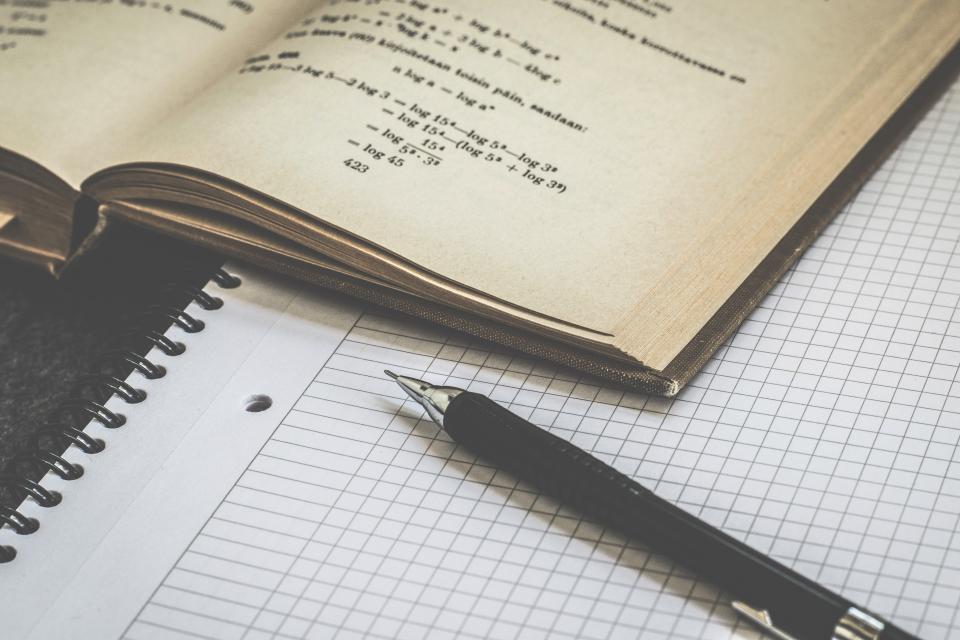我非常愿意为大家解答关于anything的用法的问题。这个问题集合包含了一些复杂而有趣的问题,我将尽力给出简明扼要的答案,并提供进一步的阅读材料供大家深入研究。

不定代词的区别 something angthing everything nothing 的用法
这个问题我会,虽然本人英语口语不是很好,但是对英语四六级词汇还是很熟悉的~给大家总结了一个表格可以先粗略看一下:
含义
1、something 英['s?mθ] 美['s?mθ] 英式发音与美式发音是一样的
pron.某事物;有价值或重要的人或事物;大致;左右
adv.有点;非常
2、anything 英['eniθ],美['eniθ] 英式发音与美式发音是一样的
pron.任何事;任何东西;重要事物
adv.在任何程度上
3、everything 英[?evriθ],美[?evriθ] 英式发音与美式发音是一样的
pron. 每件事;所有事物;最重要的东西;情况;
4、nothing 英['n?θ],美['n?θ] 英式发音与美式发音是一样的
pron.没有什么
n.没有;空;微不足道的事
adv.毫不;一点也不
用法
something的用法
something的基本意思是“某物,某事”,主要用于肯定句中,在否定句或疑问句中通常用anything。
I think I dropped something.
我想我掉了东西。
I'll try and rustle you up something to eat.
我设法给你弄点吃的。
I can predict something with great accuracy.
我能很准确地预测某事。
anything的用法
anything是指用以叙述可能存在或可能发生的一项事物或事件或用以叙述某一特定类别中的各项事物或事件; 主要用于疑问句、否定句或条件从句中代替something,意为“任何东西,任何事情绝对不”。
anything也可用于肯定句,表示“无论什么东西,随便什么事情”。
If you remember anything at all, please let us know.
你要是想起什么来,就告诉我们。
The hotel was anything but satisfactory.
这家旅馆太不让人满意了。
Is there anything for me?
有东西给我吗?
everything的用法
everything用于肯定句、疑问句中
everything作主语时,谓语动词用单数形式,everything与否定词连用时,表示部分否定。
Thank you for everything.
感谢你做的一切。
Money isn't everything.
金钱不是一切。
His standard for everything is excellence.
他对所有事物的标准是卓越。
nothing的用法
nothing用作代词的意思是“没有什么东西”,在句中可用作主语、宾语和表语。nothing还可接形容词、现在分词、动词不定式、介词短语或从句作后置定语。
nothing作主语时,谓语动词须用单数形式。
There is nothing wrong with the machine.
这台机器没什么毛病。
I know nothing about the accident.
对那次事故我什么也不知道。
There's nothing that you can do to help.
你帮不上忙。
求anything,something,nothing,everything的各种用法与语法
anything
1) 任何事情/东西, 可以用在肯定句/否定句/疑问句中。
如:You can take anything you like. Do you have anything to say?
There is not anything you like here.
2)something 的疑问/否定形式。
如:--Is there anything in the box? --No nothing.
He has not anything to do today.
everything 所有的事情/东西,如:Everything here is all right.
另外:not anything =nothing ; 而 not everything 并非/不是所有的东西/事情
定语从句
定语从句是由关系代词和关系副词引导的从句,其作用是作定语修饰主句的某个名次性成分,定语从句分为限定性和非限定性从句两种。
一、 限定性定语从句
1. that即可代表事物也可代表人,which代表事物;它们在从句中作主语或宾语,that在从句中作宾语时常可省略关系词,which在从句中作宾语则不能省略。而且,如果which在从句中作“不及物动词+介词”的介词的宾语,注意介词不要丢掉,而且介词总是放在关系代词which的前边,但有的则放在它原来的位置
2. which作宾语时,根据先行词与定语从句之间的语义关系,先行词与which之间的介词不能丢
3. 代表物时多用which,但在带有下列词的句子中用that而不用which,这些词包括all, anything, much等,这时的that常被省略
4. who和whom引导的从句用来修饰人,分别作从句中的主语和宾语,whom作宾语时,要注意它可以作动词的宾语也可以作介词的宾语
5. where是关系副词,用来表示地点的定语从句
6. when引导定语从句表示时间
〔注〕值得一提的是,表示时间“time"一词的定语从句只用when引导,有时不用任何关系代词,当然也不用that引导
By the time you arrive in London, we will have stayed there for two weeks.
I still remember the first time I met her.
Each time he goes to besiness trip, he brings a lot of living necessities, such as towers, soap, toothbrush etc.
7. whose是关系代词,修饰名词作定语,相当于所修饰成分的前置所有格
8. 当从句的逻辑主语是some, any, no, somebody, anybody, nobody, something, anything, everything或nothing时,常用there is来引导
二、非限定性定语从句:非限定性定语从句的作用是对所修饰的成分作进一步说明,通常和主句间用逗号隔开,将从句拿掉后其他部分仍可成立
1. which引导的非限定性定语从句来说明前面整个句子的情况或主句的某一部分
2. 在引导限定性定语从句时,that有时相当于in which, at which, for which或at which
Attitudes towards daydreaming are changing in much the same way that(in which) attitudes towards night dreaming have changed. 人们对白日做梦的态度正在改变,这与人们对夜间做梦的看法的变化有非常相似之处。
I like the music for the very reason that(for which) he dislike it. 我出于某种原因喜欢这种音乐,而他恰恰与我相反。
We arrived the day that(on which) they left. 刚好我们到的那天他们走了。
3. 有时as也可用作关系代词
4. 在非限定性定语从句中,不能用that,而用who, whom代表人,用which代表事物.
一.定语从句及相关术语
1.定语从句:修饰一个名词或代词的从句称为定语从句,一般紧跟在它所修饰的先行词后面。
2.关系词:引导定语从句的关联词成为关系词
关系词有关系代词和关系副词。关系代词有that, which, who, whom, whose, as等;关系副词有where, when, why等。
关系词常有3个作用:1,引导定语从句。2,代替先行词。3,在定语从句中担当一个成分。
二.关系代词引导的定语从句
1.who指人,在从句中做主语
(1) The boys who are playing football are from Class One.
(2) Yesterday I helped an old man who lost his way.
2. whom指人,在定语从句中充当宾语,常可省略。
(1) Mr. Liu is the person (whom) you talked about on the bus.
(2) Mr. Ling is just the boy whom I want to see.
注意:关系代词whom在口语和非正式语体中常用who代替,可省略。
(3) The man who/whom you met just now is my friend.
3. which指物,在定语从句中做主语或者宾语,做宾语时可省略
(1) Football is a game which is liked by most boys.
(2) This is the pen (which) he bought yesterday.
4. that指人时,相当于who或者whom;指物时,相当于which。在宾语从句中做主语或者宾语,做宾语时可省略。
(5) The number of the people that/who come to visit the city each year rises one million.
(6) Where is the man that/whom I saw this morning?
5. whose通常指人,也可指物,在定语从句中做定语
(1) He has a friend whose father is a doctor.
(2) I once lived in a house whose roof has fallen in.
whose指物时,常用以下结构来代替
(3) The classroom whose door is broken will soon be repaired.
(4) The classroom the door of which is broken will soon be repaired.
(5) Do you like the book whose cover is yellow?
(6) Do you like the book the color of which is yellow?
三.介词+关系代词引导的定语从句
关系代词在定语从句中做介词宾语时,从句常由介词+关系代词引导
(1) The school (that/which) he once studied in is very famous.
(2) The school in which he once studied is very famous.
(3) Tomorrow I will bring here a magazine (that/which) you asked for.
(4) Tomorrow I will bring here a magazine for which you asked.
(5) We’ll go to hear the famous singer (whom/that/who) we have often talked about.
(6) We’ll go to hear the famous singer about whom we have often talked.
注意:1. 含有介词的动词短语一般不拆开使用,如:look for, look after, take care of等
(1) This is the watch which/that I am looking for. (T)
(2) This is the watch for which I am looking. (F)
2. 若介词放在关系代词前,关系代词指人时用whom,不可用who或者that;指物时用which,不能用that;关系代词是所有格时用whose
(1) The man with whom you talked is my friend. (T)
(2) The man who/that you talked with is my friend. (F)
(3) The plane in which we flew to Canada is very comfortable. (T)
(4) The plane in that we flew in to Canada is very comfortable. (F)
3. “介词+关系代词”前可有some, any, none, both, all, neither, most, each, few等代词或者数词
(1) He loved his parents deeply, both of whom are very kind to him.
(2) In the basket there are quite many apples, some of which have gone bad.
(3) There are forty students in our class in all, most of whom are from big cities.
四.关系副词引导的定语从句
1. when指时间,在定语从句中做时间状语
(1) I still remember the day when I first came to the school.
(2) The time when we got together finally came.
2. where指地点,在定语从句中做地点状语
(1) Shanghai is the city where I was born.
(2) The house where I lived ten years ago has been pulled down.
3. why指原因,在定语从句中做原因状语
(1) Please tell me the reason why you missed the plane.
(2) I don’t know the reason why he looks unhappy today.
注意:关系副词引导的从句可以由“介词+关系代词”引导的从句替换
(1) The reason why/ for which he refused the invitation is not clear,
(2) From the year when/in which he was going to school he began to know what he wanted when he grew up.
(3) Great changes have taken place in the city in which./where I was born.
五.限制性定语从句和非限制性定语从句
限制性定语从句 非限制性定语从句
形式上 不用逗号和主句隔开 用逗号和主句隔开
意义上 是先行词不可缺少的定语,不能删除 是对先行词的补充说明,删除后意思仍完整
译法上 翻译成先行词的定语,“…的…” 通常翻译成主句的并列句
关系词的使用上 A.做宾语时可省略 B。可用that
C.可用who代替whom A.不可省 B。不用that
C。不用who代替whom
限制性定语从句举例:
(1) The teacher told me that Tom was the only person that I could depend on.
(2) China is a country which has a long history.
非限制性定语从句举例:
(1) His mother, who loves him very much, is strict with him.
(2) China, which was founded in 1949, is becoming more and more powerful.
要注意区分以下几个句子的不同
(1) His brother who is now a doctor always encourages him to go to college.
他那当医生的哥哥常鼓励他要考上大学。(他还有其他的哥哥)
(2) His brother, who is now a doctor, always encourages him to go to college.
他的哥哥是当医生的,常鼓励他要考上大学。(他只有一个哥哥)
难点分析
(一)限制性定语从句只能用that的几种情况
1.当先行词是anything, everything, nothing (something 除外), few, all, none, little, some等代词时,或者是由every, any, all, some, no, little, few, much等修饰时
(1) Have you taken down everything that Mr. Li has said?
(2) There seems to be nothing that seems impossible for him in the world.
(3) All that can be done has been done.
(4) There is little that I can do for you.
注意:当先行词指人时,偶尔也可以用who
(4) Any man that/.who has a sense of duty won’t do such a thing.
2. 当先行词被序数词修饰
(1) The first place that they visited in London was the Big Ben.
3. 当先行词被形容词最高级修饰时
(1) This is the best film that I have seen.
4. 当形容词被the very, the only 修饰时
(1) This is the very dictionary that I want to buy,
(2) After the fire in his house, the old car is the only thing that he owned.
当先行词指人时,偶尔也可以用who
(3) Wang Hua is the only person in our school who will attend the meeting/
5. 当先行词前面有who, which等疑问代词时
(1) Who is the man that is standing there?
(2) Which is the T-shirt that fits me most?
6. 当先行词既有人,也有动物或者物体时
(1) Can you remember the scientist and his theory that we have learned?
(二)关系代词as和which引导的定语从句
as和which引导非限制性定语从句,有相同之处也有不同之处。具体情况是:
1.As和which都可以在定语从句中做主语或者宾语,代表前面整个句子。
(1) He married her, as/which was natural.
(2) He was honest, as/which we can see.
2. as 引导非限制性定语从句,可放在主句之前,或者主句之后,甚至可以切割一个主句;which引导的非限制性定语从句只能放在主句之后。另外,as有“正如……,正像……”的意思
(1) As is known to all, China is a developing country.
(2) He is from the south, as we can see from his accent.
(3) John, as you know, is a famous writer.
(4) He has been to Paris more than several times, which I don’t believe.
注意:当主句和从句存在逻辑上的因果关系时,常用which
(5) Tom was always late for school, which made his teacher angry.
3. 当先行次受such, the same修饰时,常用as
(1) I have never heard such a story as he tells.
(2) He is not such a fool as he looks.
(3) This is the same book as I lost last week.
注意:当先行次由the same修饰时,偶尔也用that引导定语从句,但是和由as所引导的定语从句意思不同
(4) She wore the same dress that she wore at Mary’s wedding. 她穿着她在MARY婚礼上穿过的一条裙子。
(5) She wore the same dress as her young sister wore. 她穿着和她妹妹所穿的一样的裙子。
(三)以the way为先行词的定语从句通常由in which, that引导,而且通常可以省略。
(1) The way in which/ that/./ he answered the question was surprising.
(四) but有时也可以做关系词引导定语从句
(1) There are very few but understand his idea. ( but= who don’t )
(五) 区分定语从句和同位语从句
1.定语从句修饰先行词,它和先行词是修饰关系;同位语从句说明先行词的具体内容,是补充说明的关系
(1) The plane that has just taken off is for London. 定语从句
(2) The fact that he has been dead is clear. 同位于从句
2.定语从句由关系代词或者关系副词引导,关系词在句中充当成分,有时可以省略;同位语从句主要由that引导,在句中一般不做成分;句子也可以由when, where, how, why, whether, what等词引导,充当成分
(1) The news he told me is true.
(2) The news that he has just died is true.
(3) The problem that we are facing now is how we can collect so much money. 定语
(4) The problem how we can collect so much money is difficult to solve.
3. 同位语从句和先行词一般可以用be动词发展成一个完整的句子,而定语从句不可以
(1) The idea that we could ask the teacher for advice is wonderful. 同位语
(2) The idea was that we could ask the teacher for advice.
(3) The fact that the earth moves around the earth is known to all.
(4) The fact is that the earth moves around the earth.
anything跟everything用法有什么不同啊?
我是一名英语老师,我们在课堂教学中经常会对anything和everything进行区分,在肯定句中,anything表示“任何事情、任何东西”,此时它与everything“所有事情、所有东西”容易混淆,它的具体区别如下:
一:含义解释
anything 英 [?eniθ?] ?美 [?eniθ?] ?pron.
任何事物,什么事情 ;任何事物,任何事情;多少接近于;(限定范围内的)任何一点
everything ?英 [?evriθ?] ? 美 [?evriθ?] ?pron.
每件事;所有事物;最重要的东西;情况
相同点:同样都有每个事物的意思。
不同点:anything强调任何一件事情或东西,任意选择其中之一,强调个体;
everything强调所有的事情或东西,强调包括全部的整体。
二:用法区分
everything多用于肯定句中,anything多用于否定和疑问句中。
anything的用法
1、anything是指用以叙述可能存在或可能发生的一项事物或事件或用以叙述某一特定类别中的各项事物或事件;主要用于疑问句、否定句或条件从句中代替something,意为“任何东西。任何事情绝对不”。
2、anything也可用于肯定句,表示“无论什么东西,随便什么事情”。
3、anything用作主语时,谓语动词用单数形式,其代词也用单数(it)。
everything的用法
1、用作主语,谓语用单数;使用代词时,用it。
2、与not 连用,通常构成部分否定。
3、受形容词修饰时,形容词应后置。
4、后接定语从句时,通常用关系代词that来引导(that作宾语时通常省略)。
三:典型例句
1、anything?
——I?won't?be?bullied?into?signing?anything.?
我绝不会屈服于压力签署任何东西。
——He?is?convinced?he?just?has?to?say?'please'?and?he?can?have?anything.?
他深信只要说一个“请”字,他就能拥有任何东西。
——If?you?need?anything,?I?am?at?your?service.?
您要是需要什么,请尽管吩咐。
2、everything
——Everything?could?be?done?by?a?nod?and?a?wink.?
每件事只靠点拨一下就能办妥了。
——Everything?was?wrong,?his?life?seemed?to?be?a?wasteland.
每件事都不对劲,他的生活百无聊赖。
——Get?everything?in?writing?in?order?to?cover?your?back.?
一切都要立字为据,以绝后患。
anything的用法
跟anything(任何事、东西,否定词)对应的是everything(任何事、东西,肯定词)
eg1:I don't want anything。我不要任何东西
eg2:I want everything。我要任何东西(所有东西)
然后anything, everything, something,(一些事), nothing(没有,无)这几个叫做不定代词。一般修饰它要把修饰词放在后面,也就是所谓的定语后置
eg3: Just try something interesting. (做一些有趣的事情吧! 一般的修饰词,形容词是放在名词前的,这几个词是特例)
eg:4 I don't want to do anything difficult (我不想做任何困难的事情), and I am willing to do everything easy, (我乐意去做一些简单的事情)especially something interesting.(尤其是有趣的事情)
希望能帮到你!
everything与 anything的用法
anything
1) 任何事情/东西, 可以用在肯定句/否定句/疑问句中。
如:You can take anything you like. Do you have anything to say?
There is not anything you like here.
2)everything 的疑问/否定形式。
如:--Is there anything in the box? --No nothing.
He has not anything to do today.
everything 所有的事情/东西,如:Everything here is all right.
另外:not anything =nothing ; 而 not everything 并非/不是所有的东西/事情
anything 和everything的区别就在于:anything不是指所有的,而everything是所有的
something 和anything用法
something和anything都有“有些事物”的意思,此时something用在肯定句中,而anything用在疑问句或否定句中.something用在疑问句中时表示希望对方给予肯定回答.一般情况下,something 用于肯定句,anything用于否定和疑问.而在很有礼貌的问某人要吃什么和喝什么时,应该使用something .这是一种特殊的用法. anything用在肯定句中表示的意思是“任何事物”.something 一些事或者说是某些东西,通常用在肯定句中.如something you like.你喜欢的一些事情.Give me something to eat.给我一些吃的东西.?anything 两个意思1,一些事 2,任何事当它是第一个意思的时候,通常用于在否定以及疑问句中替代something,因为something一般用于肯定句中.(当然如果你肯定你问的问题对方会给予你肯定回答,疑问句中也要用something,反之就用anything)第二个意思很好理解,它强调的是任何事,任何个体.一个有名的广告语,Anything is possible.一切都有可能.I think I can do anything for you.为了你,我愿意做任何事.

好了,关于“anything的用法”的话题就讲到这里了。希望大家能够通过我的讲解对“anything的用法”有更全面、深入的了解,并且能够在今后的工作中更好地运用所学知识。






